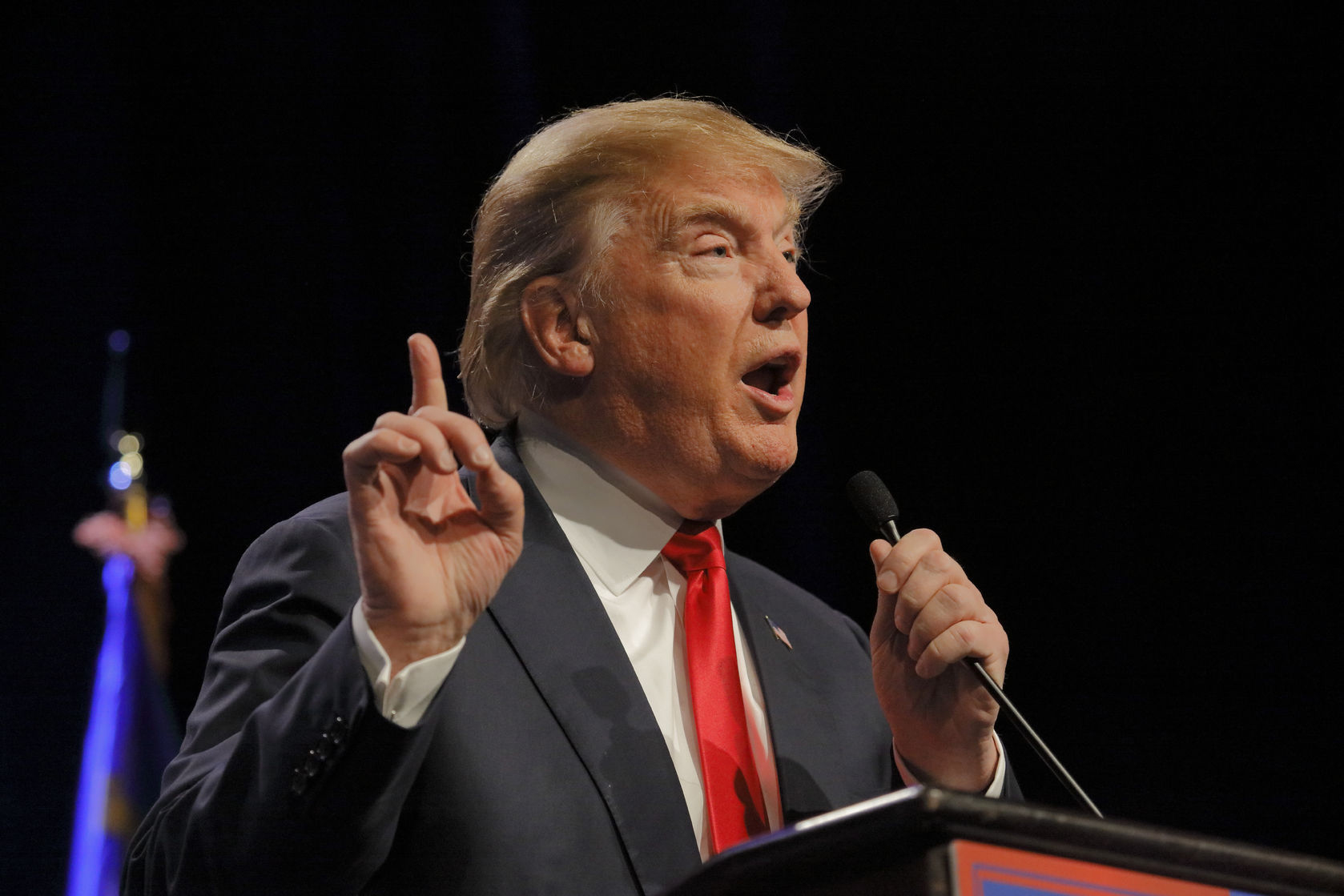Despite Republican presidential candidate Donald Trump’s reality show candidacy, his recent foreign policy speech put forth a realistic view of the world and a largely credible foreign policy to deal with it. Continuing his poke at the political establishment, the maverick candidate proposed a viable alternative to the bi-partisan foreign policy consensus, which uses unneeded and profligate military interventions overseas as the primary U.S. foreign policy tool.
As opposed to the interventionist, neo-conservatism of the Bush administration and the equally meddling liberal hawkishness of Hillary Clinton, Trump got back to basics and let Americans citizens know that his foreign policy would safeguard American national interests first—not those of foreign countries, including providing for their security while they freeload.
He laudably said that military intervention would be used only as a last resort, after diplomacy and economic sanctions were used—and even the latter would be used sparingly.
Rather than using military power in a vain attempt to export democracy by force into foreign countries that are unreceptive to it, as the United States did in Iraq and Libya, Trump said that the United States should promote its values through leading by example. This policy is smarter because democracy better takes root when people in a country accept it willingly rather than having it shoved down their throats at gunpoint. In only four out of 18 attempts since 1900 has the forcible U.S. export of democracy succeeded.
Echoing the more traditional, less interventionist, and much more effective U.S. foreign policy that was the norm before the Cold War began, and which has been long forgotten, Trump said that the United States would “not go in search of enemies.” This restrained foreign policy served the United States well from its birth in the late 1700s to 1947—when it began to police the world—because the country has been gifted geographically to be far away from the world’s conflict zones.
To make his case for a more restrained U.S. foreign policy, Trump convincingly noted the twin foreign policy disasters of the Bush and Obama administrations in trying to export democracy using military power and nation building—in Iraq and Libya—that have instead caused chaos in the Middle East and allowed the terror group ISIS to fill the vacuum. He noted that he had opposed Bush’s Iraq War from the start, because the invasion would destabilize the Middle East and strengthen the Islamist regime in Iran, both of which occurred.
Although Trump has been excessively critical of China in trade and economic matters, he expressed a desire to work with that country if it worked with the United States. The United States should try to have better relations with a nuclear-armed nation that is rising in economic and military power and political influence. As for Russia, he saw a common interest in fighting Islamist terrorism and believes that the United States and Russia could ease their strained relations. In both cases, he wants to seek common ground, correctly saying that neither country needed to be a U.S. adversary. One needn’t fully trust these two nuclear-weapon states or agree with their domestic political systems to appreciate their need for a security buffer zone in their respective regions and the need to work with them on specific issues when it is in U.S. national interest to do so.
Finally, Trump realizes a central problem in U.S. foreign policy: U.S. resources have been overextended in policing the world and providing for the defense of wealthy allies that need to do more for their own security. He threatened that if these countries didn’t do more, the United States should let them defend themselves. Trump realizes that unless the United States threatens to do less, these allies will never increase spending on their own defense. Also, he recognizes something that much of the U.S. foreign policy elite gives short shrift—long-term U.S. security requires more emphasis on the health of the American economy.
Despite Trump’s usual campaign bluster, his foreign policy views are largely well argued and based on knowledge of and stark admission of numerous past instances of excessive and failed military meddling overseas.

















